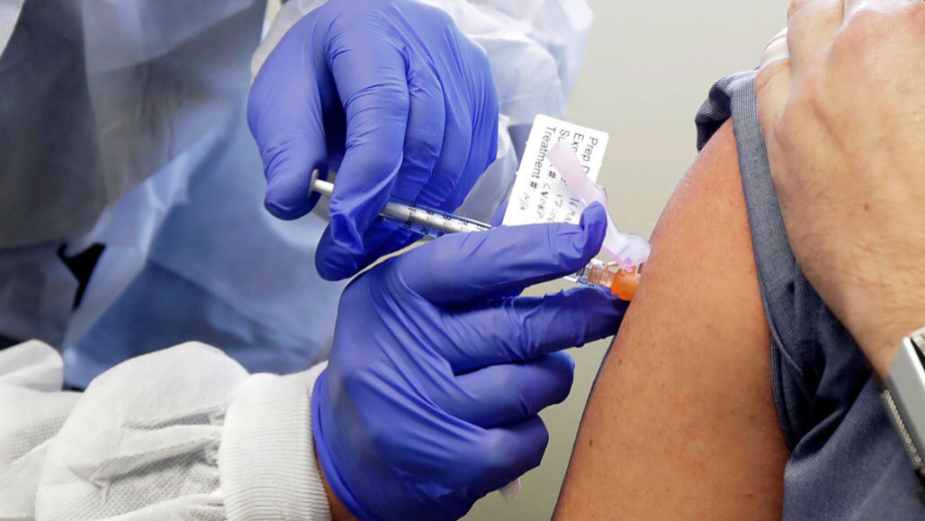Alaska healthcare worker hospitalized with a ‘serious allergic reaction’ after receiving Pfizer’s COVID-19 vaccine; person had no history of allergies

We’ve been following the story of the Pfizer vaccine since early March when German biotech company BioNTech announced two strategic partnerships to advance the development of vaccines with Pfizer and also China-based Fosun Pharma. Then on November 9, Pfizer and BioNTech announced that their COVID-19 vaccine offers 90% protection on 43,500 people in 6 countries with no safety concerns. Pfizer later asked the U.S. Food and Drug Administration (FDA) for emergency use of its COVID-19 vaccine in the US ten days later.
Fast forward to this month, FDA said that two people died from the Pfizer COVID-19 vaccine trial as vaccine safety concerns come to the forefront. The revelation about the deaths was buried on page 50 of the 90-page briefing document. Nevertheless, the FDA approved Pfizer’s COVID-19vaccine for emergency use authorization two days later. The agency also asked Pfizer to provide ‘reports that result in hospitalization or death’
Now, for the first time, the New York Times is reporting that a healthcare worker in Alaska, who had no history of allergies, was hospitalized on Tuesday with a ‘serious allergic reaction’ after receiving Pfizer’s COVID-19 vaccine. The reported allergic reaction is similar to two other reactions reported in Britain.
Per the NY Times, the Alaska healthcare worker’s reaction was reportedly similar to anaphylactic reactions two health workers in Britain experience after receiving the Pfizer-BioNTech vaccine last week. The two Britons, who had a history of severe allergies, later recovered, NY Times said.
One, a 49-year-old woman, is allergic to eggs (which Pfizer says are not in their vaccine). The other, a 40-year-old woman is allergic to several different medications. Both routinely carry EpiPenn-like devices in case of reactions. Below is how the NY Times explained it:
“After the workers in Britain fell ill, authorities there warned against giving the vaccines to anyone with a history of severe allergic reactions. They later clarified their concerns, changing the wording from “severe allergic reactions” to specify that the vaccine should not be given to anyone who has ever had an anaphylactic reaction to a food, medicine or vaccine. That type of reaction to a vaccine is “very rare,” they said.”
Meanwhile, Alex Berenson is a former NYT reporter and author of Tell Your Children and Unreported Truths about COVID-19 and Lockdowns. After reading through thousands of pages of FDA and CDC documents relating to the vaccine, Alex said: “I can’t say this more clearly: after a year of trust-destroying decisions from the public health bureaucracy, lying about the side effect profile of the @pfizer vaccine will do damage that can’t be fixed. The data are clear: many people will have very unpleasant side effects…“
Berenson is not alone. Below is what Dr. James Todaro, (MD Medical Degree, Columbia University) said:
“For anyone considering the Pfizer vaccine, know that you are getting an EXPERIMENTAL vaccine. You are participating in a study looking for adverse events Think twice if you are under 50 yrs old with an IFR under 0.02%. Image below from the FDA’s EUA for the Pfizer vaccine.”
For anyone considering the Pfizer vaccine, know that you are getting an EXPERIMENTAL vaccine.
You are participating in a study looking for adverse events
Think twice if you are under 50 yrs old with an IFR under 0.02%.
Image below from the FDA’s EUA for the Pfizer vaccine. pic.twitter.com/MggbV8PBe5
— James Todaro, MD (@JamesTodaroMD) December 14, 2020
Meanwhile, Pfizer CEO not certain if the vaccine will prevent transmission of coronavirus; also unclear if vaccinated people can still spread COVID-19 to others.




